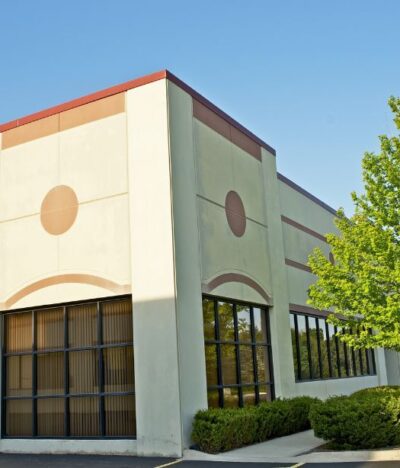Introduction
Florida architects and engineers play a crucial role in construction projects, designing and planning buildings that are safe, functional, and aesthetically pleasing. However, even with their expertise, architects are not immune to errors or omissions causing significant financial and personal consequences, which leads to construction defect and negligence litigation. In the state of Florida, like in many other jurisdictions, architects and engineers can be held liable for professional negligence. Civil litigation becomes the avenue for seeking money damages. In this post, we will explore the negligence liability of architects and engineers in Tampa civil litigation.
Negligence Liability of Architects
Architects and engineers, as professionals, owe a duty of care to their clients and third parties who may be affected by their work. This duty of care means that architects must exercise reasonable skill, care, and diligence in the performance of their professional services. If an architect fails to meet this duty of care and their actions or omissions result in harm or damage, they may be held liable for negligence and damages.
The burden of proof rests on the plaintiff to establish the elements of negligence. It is crucial to note that the standard of care expected from architects and engineers may vary depending on factors such as their level of experience, the complexity of the project, and prevailing industry standards. Therefore, it is often necessary to consult expert witnesses, such as other architects, to testify regarding the standard of care and whether the defendant engineer deviated from it.
Potential Areas of Architectural Negligence
Architectural negligence can arise in various stages of a project, including design, construction, and post-construction. Some common examples of architectural negligence in Florida include:
Design Errors: Architectural designs must be accurate, safe, and compliant with applicable codes and regulations. Design errors, such as inadequate structural support, faulty electrical or plumbing systems, or incorrect calculations, can lead to construction defects and pose serious risks to occupants.
Failure to Supervise Construction: Architects are responsible for ensuring that construction is carried out in accordance with the approved plans and specifications. Negligence may occur if an architect fails to adequately supervise the construction process, leading to deviations from the design or the use of substandard materials.
Code Violations: Architects must possess a thorough understanding of building codes and regulations applicable to their projects. Failure to comply with these requirements can result in serious legal and safety issues.
Inadequate Project Management: Architects are often involved in project management, coordinating various stakeholders and ensuring the project progresses smoothly. Negligence can occur if an architect fails to properly manage the project, leading to delays, cost overruns, or other adverse consequences.
Defenses and Limitations on Liability
Architects and engineers facing negligence claims in civil litigation can raise various defenses to counter the allegations. Some common defenses include:
Lack of Duty: The architect may argue that they did not owe a duty of care to the plaintiff or that the duty was limited in scope.
Comparative Negligence: The architect may assert that the plaintiff’s own negligence contributed to the damages suffered, reducing or eliminating the architect’s liability accordingly.
Statute of Limitations: There are specific time limits, known as statutes of limitations, within which a lawsuit must be filed. If the plaintiff fails to initiate legal action within the prescribed time period, the architect may raise this defense to have the case dismissed. For professionals like architects and engineers, this period is two years.
Damages and Recovery
A plaintiff suing an architect or engineer need not prove physical injury and need not have suffered property damage. A plaintiff can claim purely Economic Damages. These include the cost of repairing the architectural defects, any additional expenses incurred due to the negligence, and the diminished value of the property.
What do the Courts Say?
A profession is “any vocation requiring at a minimum a four-year college degree before licensing is possible in Florida.” Lochrane Engineering, Inc. v. Willingham Realgrowth Inv. Fund, Ltd., 552 So.2d 228 (Fla. 5th DCA 1989).
Florida law provides that professional service corporations may be held liable for negligence as well as their individual employee engineers. Moransais v. Heathman, 744 So.2d 973 (Fla. 1999). This is true even if the plaintiff suing did not have a direct contract with the architect or engineer. This occurs when a plaintiff traces liability through the company or person that had the agreement with the architect to create the drawings.
An individual architect and architect firm were open to liability where defective design documents were provided to the contractor by the project owner, a School Board in this case, when the architect and firm knew the drawings would be supplied by the School Board to the successful bidding contractor who would be injured if they were inadequate. Hewett-Kier Constr., Inc. v. Lemuel Ramos & Assocs., Inc., 775 So. 2d 373 (Fla. 4th DCA 2000).
Tips
Put it in writing! Architects and engineers should have a very tightly drafted scope of work. In addition, consider including limiting language in your agreement for services such as limiting parties who are entitled to rely on your work. You should also consider including limiting language for your indemnification liability for losses suffered by third parties.
Conclusion from a Tampa Civil Litigation Attorney
Architects and engineers have a professional duty to exercise reasonable care and skill in their work. Architectural negligence claims can be complex, and expert witnesses may be necessary to establish the standard of care and whether the architect or engineer deviated from it.
If you find yourself involved in a negligence claim related to architectural or engineering services in Tampa, it is important to consult with a qualified civil litigation attorney to protect your rights and interests. Your Tampa Civil Litigation Attorney can provide personalized guidance to help protect your rights while navigating the complexities of your case.







